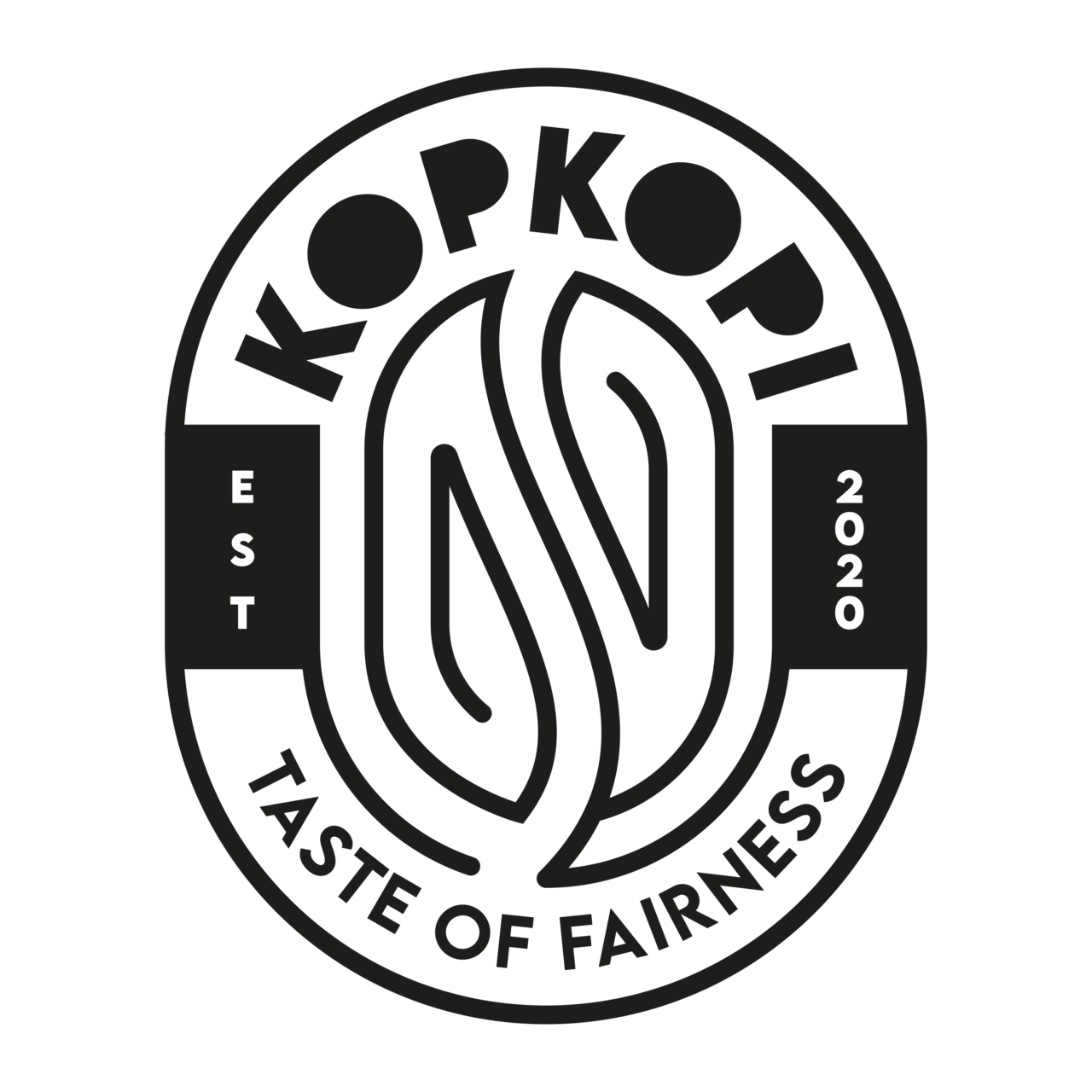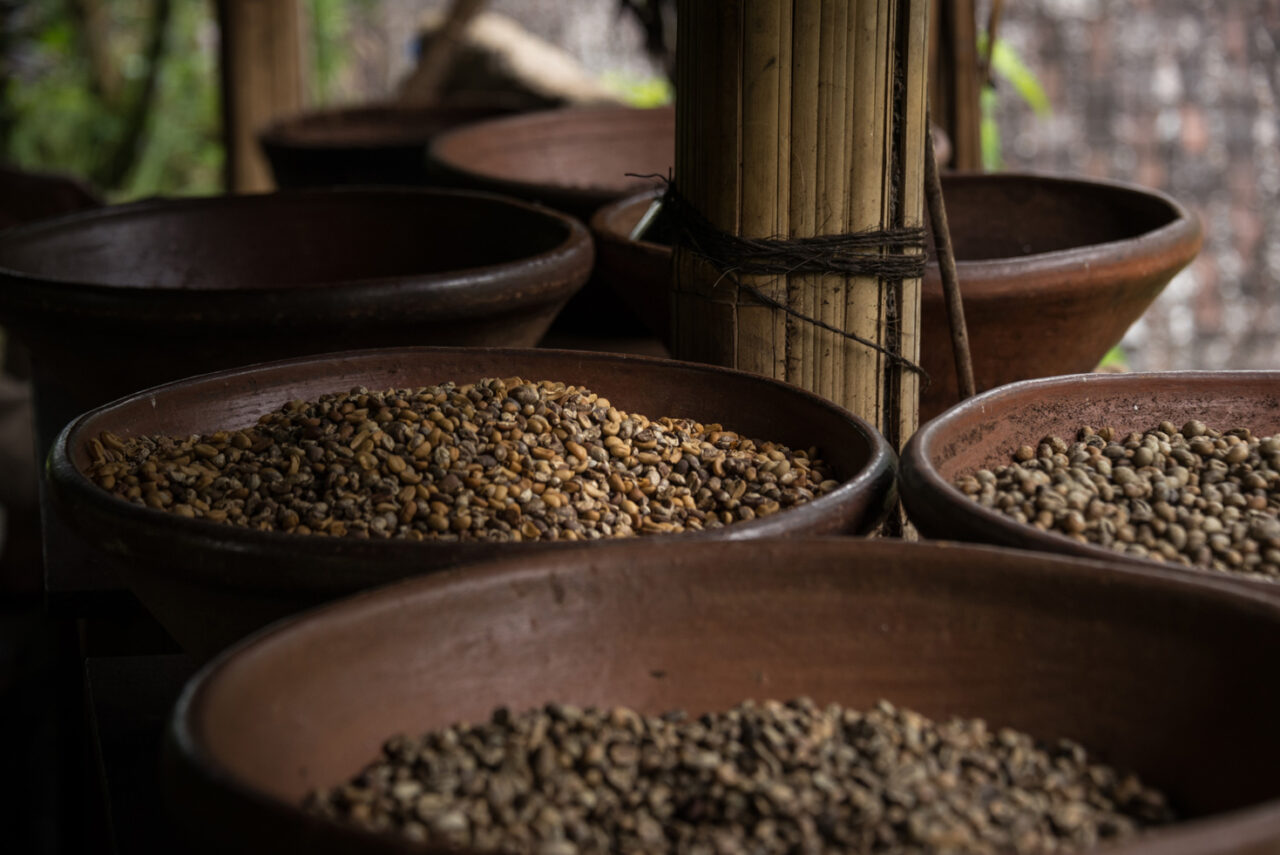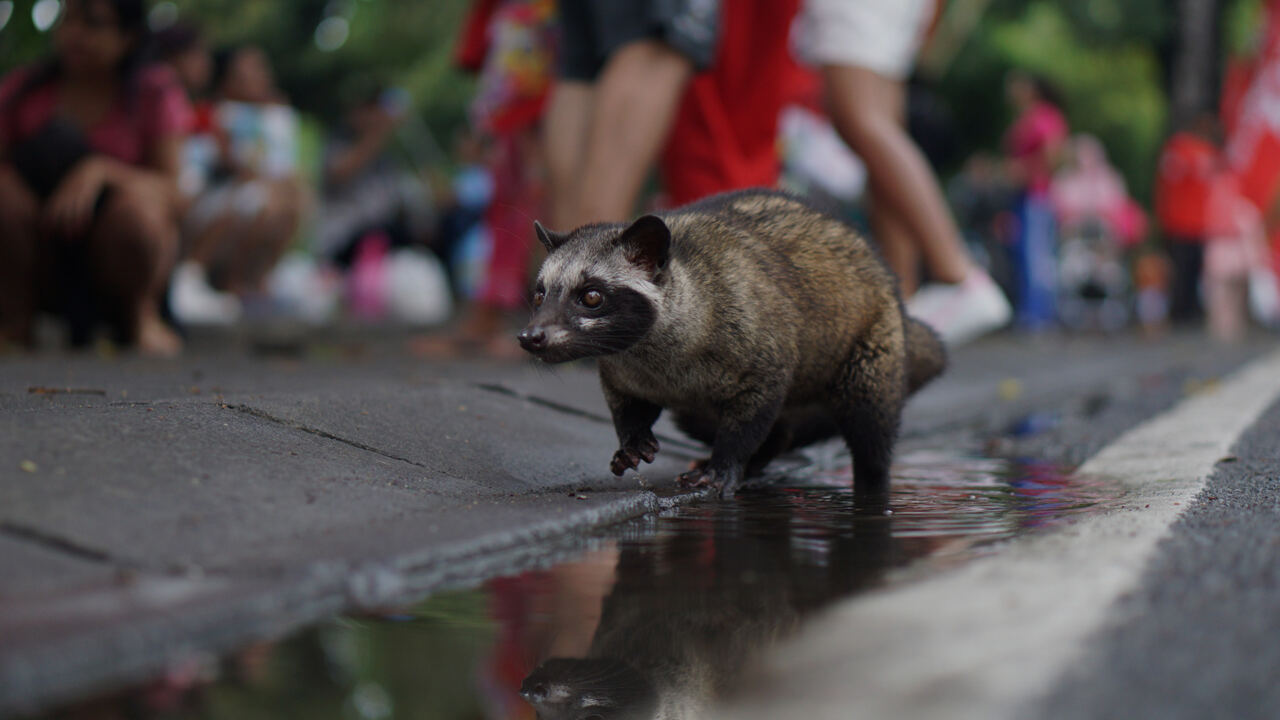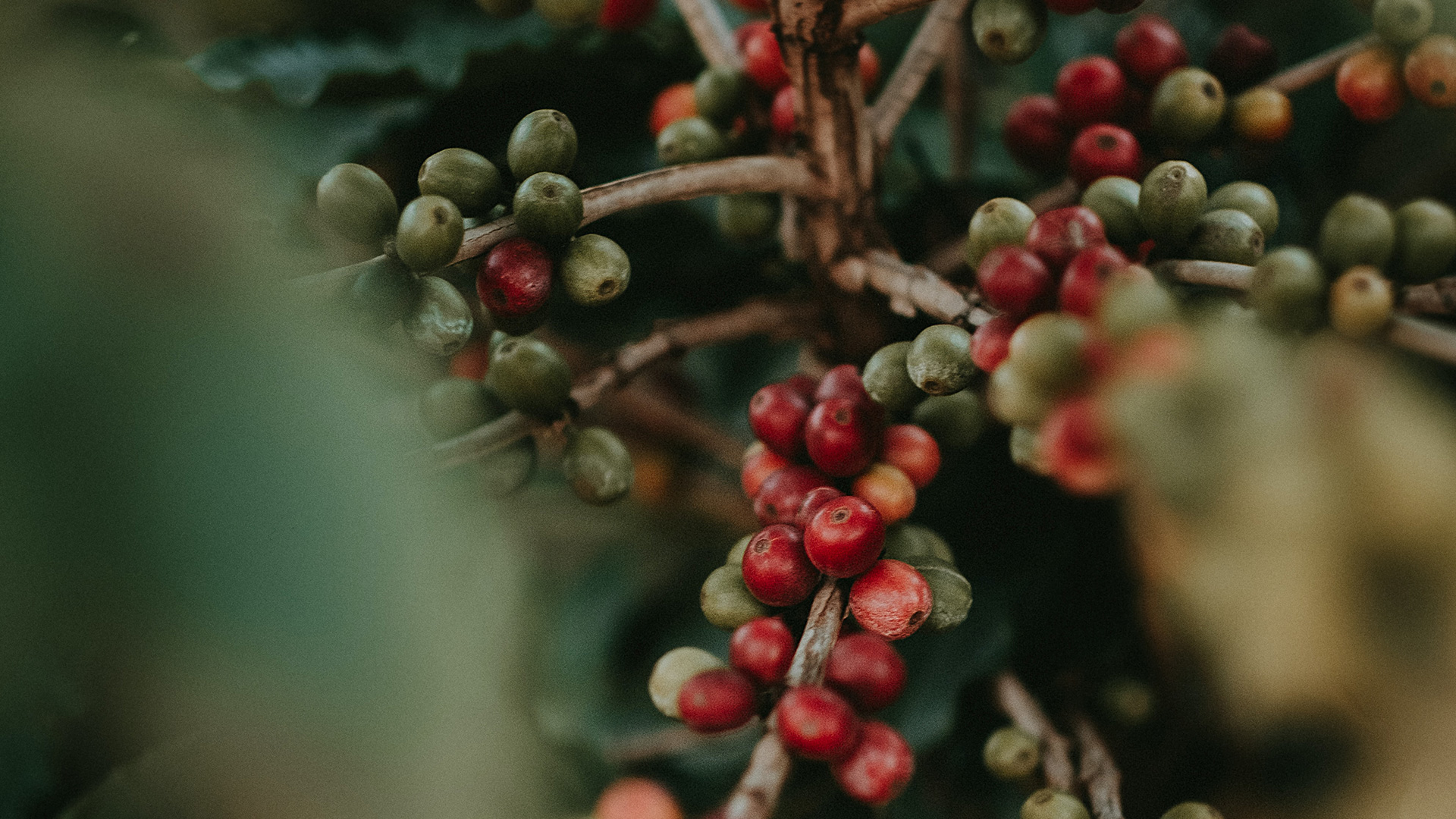GET TO KNOW OUR BOURBON Coffee from Rwanda
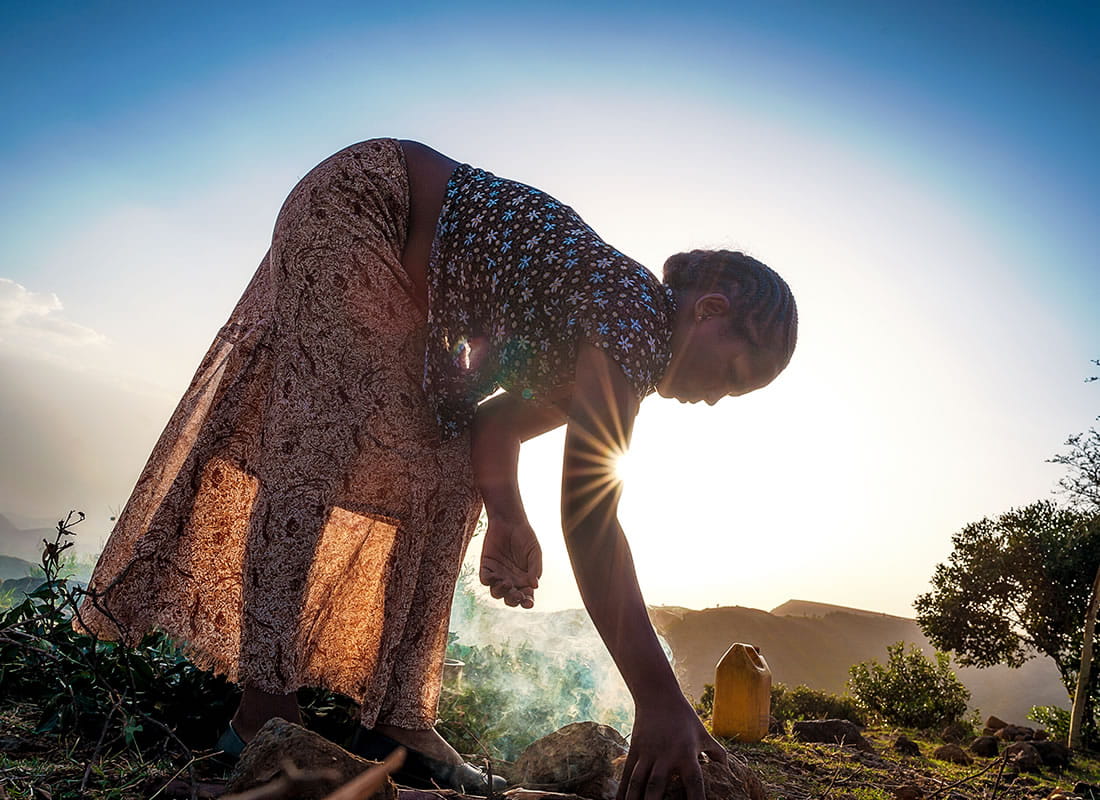
2°30’40.3″S 29°41’04.0″E
BOURBON HUYE HONEY
Get to know our Bourbon Huye Honey coffee, from history to brewing guide.
Find out more about our Bourbon coffee below.
ABOUT SIMBI WASHING STATION
The Simbi Coffee washing station is located in the Huye district of Rwanda’s southern province and serves 1,850 smallholder coffee farmers who all grow high quality Arabica red bourbon coffee.
Simbi is a privately owned washing station operated by Abdul Rudahunga, who was inspired to get into the coffee business by his grandmother. She was also a coffee farmer and one of the few native Rwandans that roasted and enjoyed her own coffee as part of her daily routine.
The washing station was established as recently as 2013 with the construction of a 300 metric ton per season cherry processing facility, and a 2.8 tons per hour pulping machine. Following the pulping of freshly delivered cherries, the coffee is wet fermented and then the beans are sorted by density using water filled grading channels.
The wet parchment is dried under cover for 24 hours before being moved to uncovered drying beds for an average of 15 days. During that period the coffee is continually hand sorted by an army of brightly clothed women who are meticulous in their removal of defect beans.
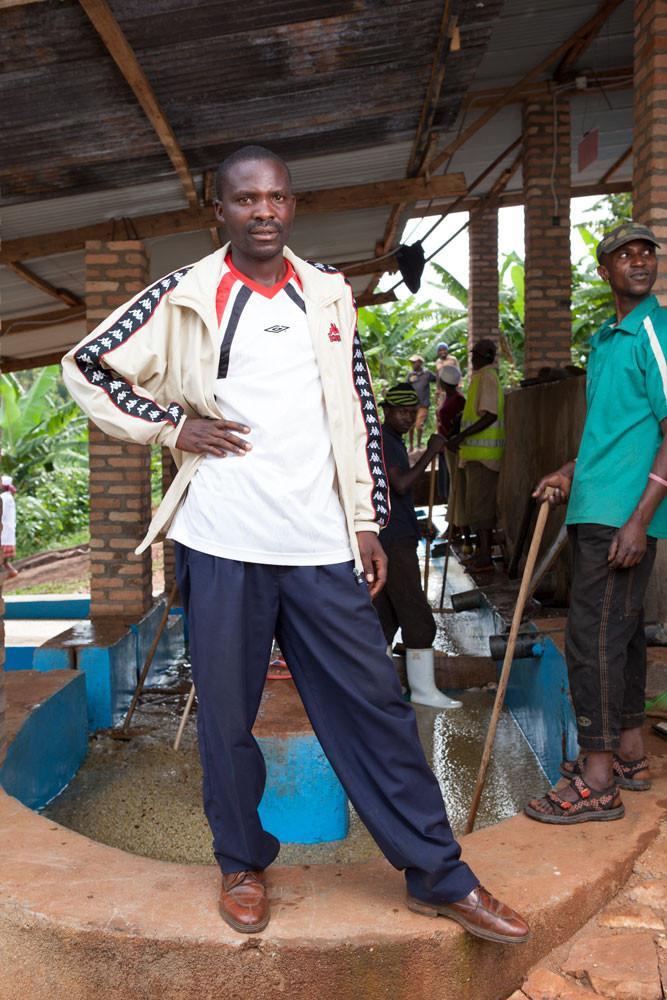
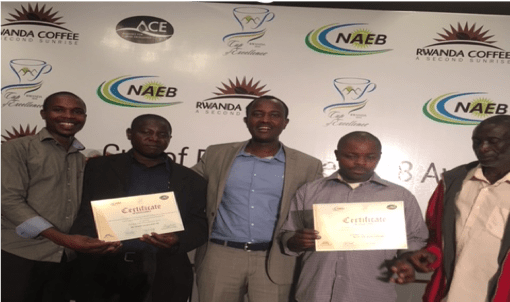
CUP OF EXCELLENCE
In Simbi’s first year of operation, a sample was submitted for The Cup of Excellence competition and achieved 9th place, an incredible achievement given its newcomer status. Such an accolade has inspired its owners to focus on maintaining high quality while increasing production.
COFFEE GROWING IN RWANDA
Despite the tragedies of genocide and civil war which shook the world in 1994, Rwanda is an incredibly beautiful and culturally rich nation which also produces exceptionally good coffee. In Rwanda coffee has brought hope for a better future since those dark days and the country is now rightly heralded as a top producer of fine specialty coffee.
Rwanda is blessed with ideal coffee growing conditions that include high altitude, regular rainfall, volcanic soils with good organic structure and an abundance of Bourbon coffee trees.
The vast majority of Rwandan coffee is produced by smallholders of which there are thought to be around half a million with parcels of land often not much larger than just one hectare per family. Coffee is grown in most parts of the country, with particularly large concentrations along Lake Kivu and in the southern province. Rwandan smallholders organise themselves into cooperatives and share the services of centralised wet-mills – or washing stations as they are known locally.
The picturesque Huye district has a hilly landscape from east to west, but moving west and northwest it will transform into a steep, mountainous area. With high altitudes, regular rainfall and mineral-rich volcanic soils, Rwanda is blessed with ideal conditions for growing coffee. The most common botanical variety of arabica is bourbon.
The Republic of Rwanda, once known as Rwanda, is located in the central part of Africa, just below the equator. It is one of the smallest African countries. Due to its location in the middle of the continent it has no access to the ocean. It neighbors Tanzania, Burundi, Uganda and the Democratic Republic of Congo. Rwanda has three official languages: Rwanda, English and French. The currency is the Rwandan Franc (RWF) and one zloty (1 PLN) can be exchanged for 220 francs.
Rwanda has a very sad history, in 1994 extremists from the Hutu tribe murdered nearly one million people from the Tutsi tribe in 100 days. This completely changed the ethnic structure of the country, currently 82% of the population are descendants of Hutu and Tutsi, only 9.6%, and the indigenous people – Pygmies TWA is only 1.8% of the population.
Rwanda, like most African countries has a colonial history, in addition to the Belgians, this region was also ruled by the Germans. The Europeans put emphasis on the Christianization of their regions, as a result of which more than 93% of the inhabitants of Rwanda are followers of Christ, in various denominations.
The country has a constitution enacted in 2003, and laws are established regarding the head of state and government, as well as their terms of office. The president is elected by universal suffrage for 7 years, and the bicameral parliament consists of a senate (for 8 years) and a chamber of deputies for 5 years.
In Rwanda, coffee is grown almost throughout the country, with a few exceptions, such as the northeastern areas. The most famous regions for coffee cultivation are Gakenke, Nyamagabe and Huye. The country ranks only 30th in the world in terms of the amount of coffee produced, with a production of about 18,000 tons. The most common botanical variety of Arabica is red bourbon.
Cooperatives of small growers, in the southern part of Huye on the hillsides among the undulating hills near the picturesque Lake Kivu put all their effort and knowledge into the coffee cherries, which are hand-picked from March to May each year. The vast majority of Rwandan coffee is produced by small farmers, of which there are about half a million, with roughly a one-hectare plot per farmer.
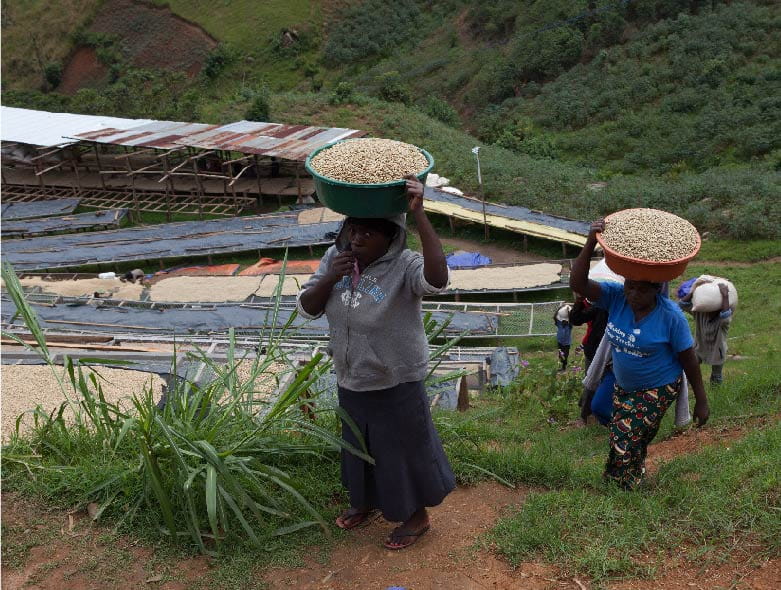
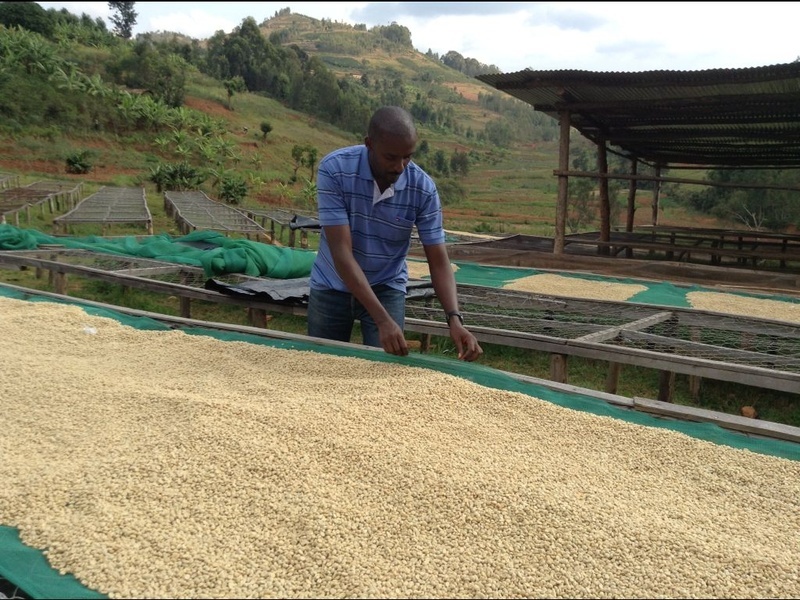
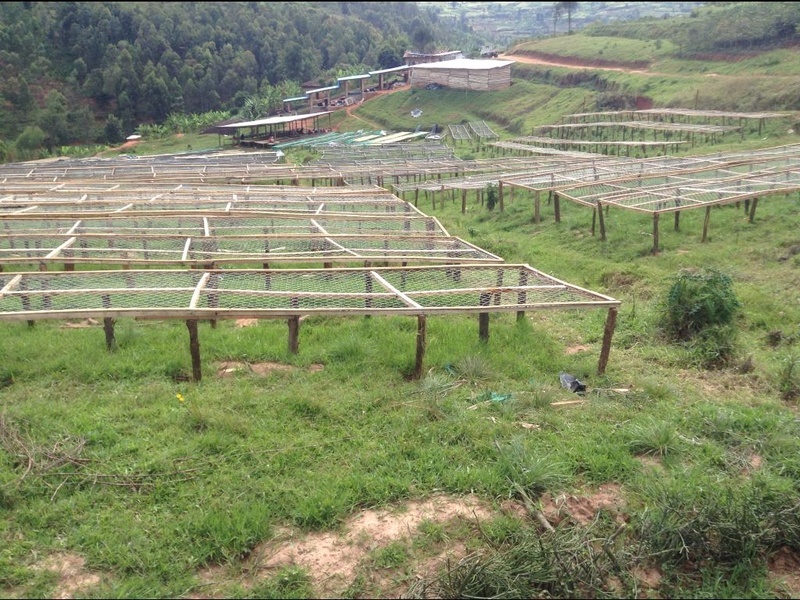
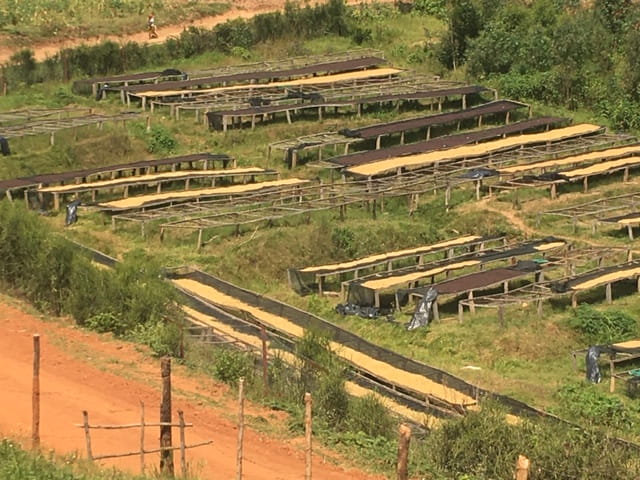
ABOUT THE BOURBON VARIETAL
A natural mutation of Typica, Bourbon is a high-quality, medium-yield coffee known for its sweet taste. It has, however, low resistance to leaf rust, coffee berry borer, and other diseases and pests. It’s commonly grown in Burundi and Rwanda, as well as throughout Latin America.
Why should you care about Bourbon coffee? For the same reasons why you should know about Typica: its early appearance in the coffee variety tree means it has also engendered numerous others. It’s also a fairly common plant celebrated for its good quality.
This varietal originated on the Island of Bourbon (now known as Reunion Island) and is a mutation of early Arabica species from Ethiopia. The leaves are broad and cherries can ripen red, yellow or orange. This varietal is known for its amazing complex acidity and great balance.
SIMBI COFFEE WASHING STATION
Simbi Coffee Washing Station was built in 2011 and 2012, the season of 2013 was the first for this investor in the region. That season, Simbi CWS employs an average of 85 people over a period of three months, out of them around 80% are women.
In the first season of working, in Rwanda Cup of Excellence 2013, Simbi came 9th with a score of 86.78 % in 159 samples after three selections with national and international cuppers. In the COE 2015, Simbi coffee came in 7th place with 88.89 %. The COE of 2018, Simbi Coffee came in 17th place with 87.62 in 28 winning lots from 150 lots selected nationwide.
The cherries are well handpicked, washed, well sorted after fermentation step, fully sun dried on dry tables and hand sorted to ensure only the best coffee beans are processed.
Simbi uses the wet fermentation method, and density sorting using grading channels and water. They then transport the wet parchment for 24 hours of covered drying before moving the parchment to uncovered drying beds for an average of 15 days.
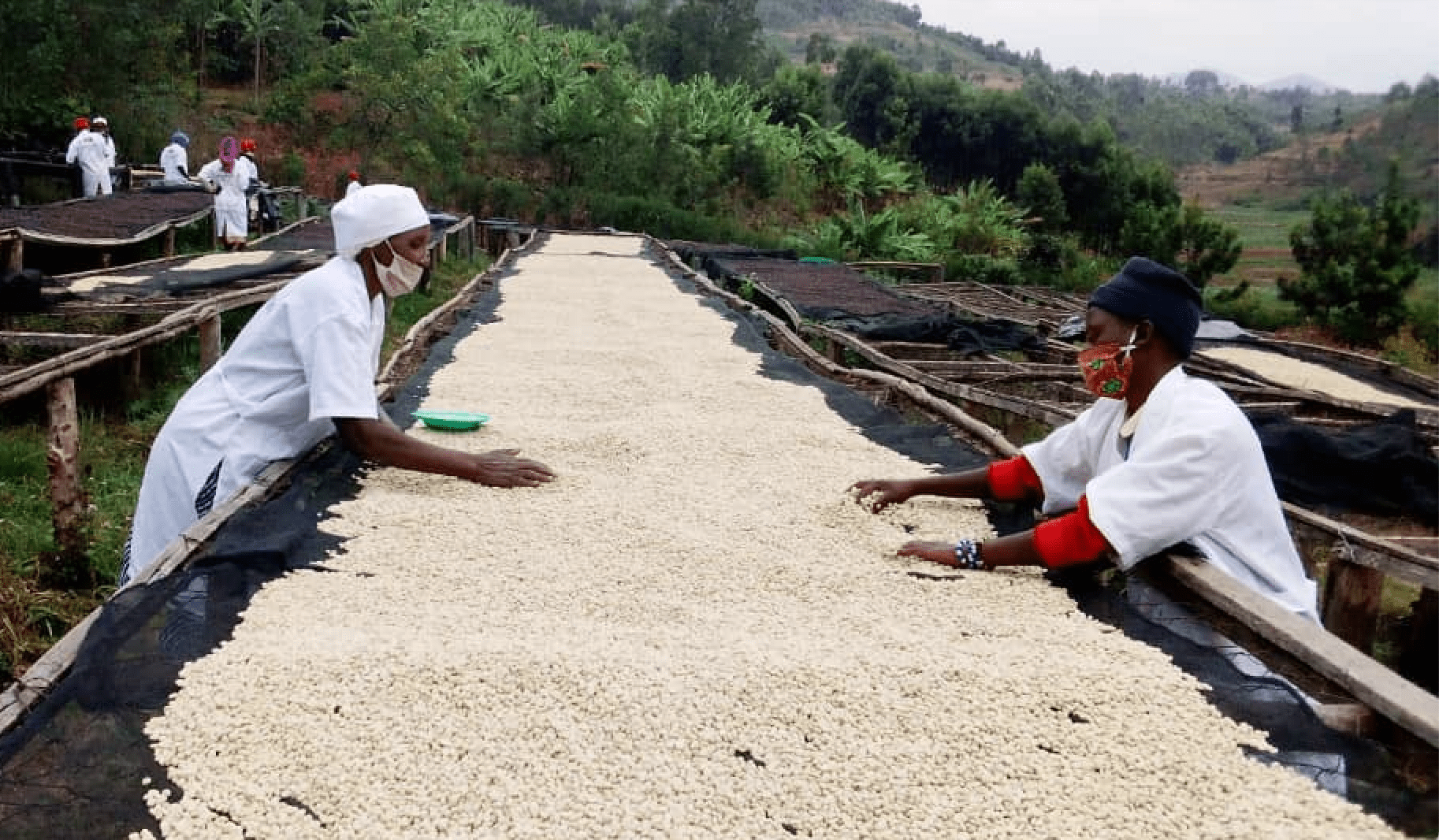
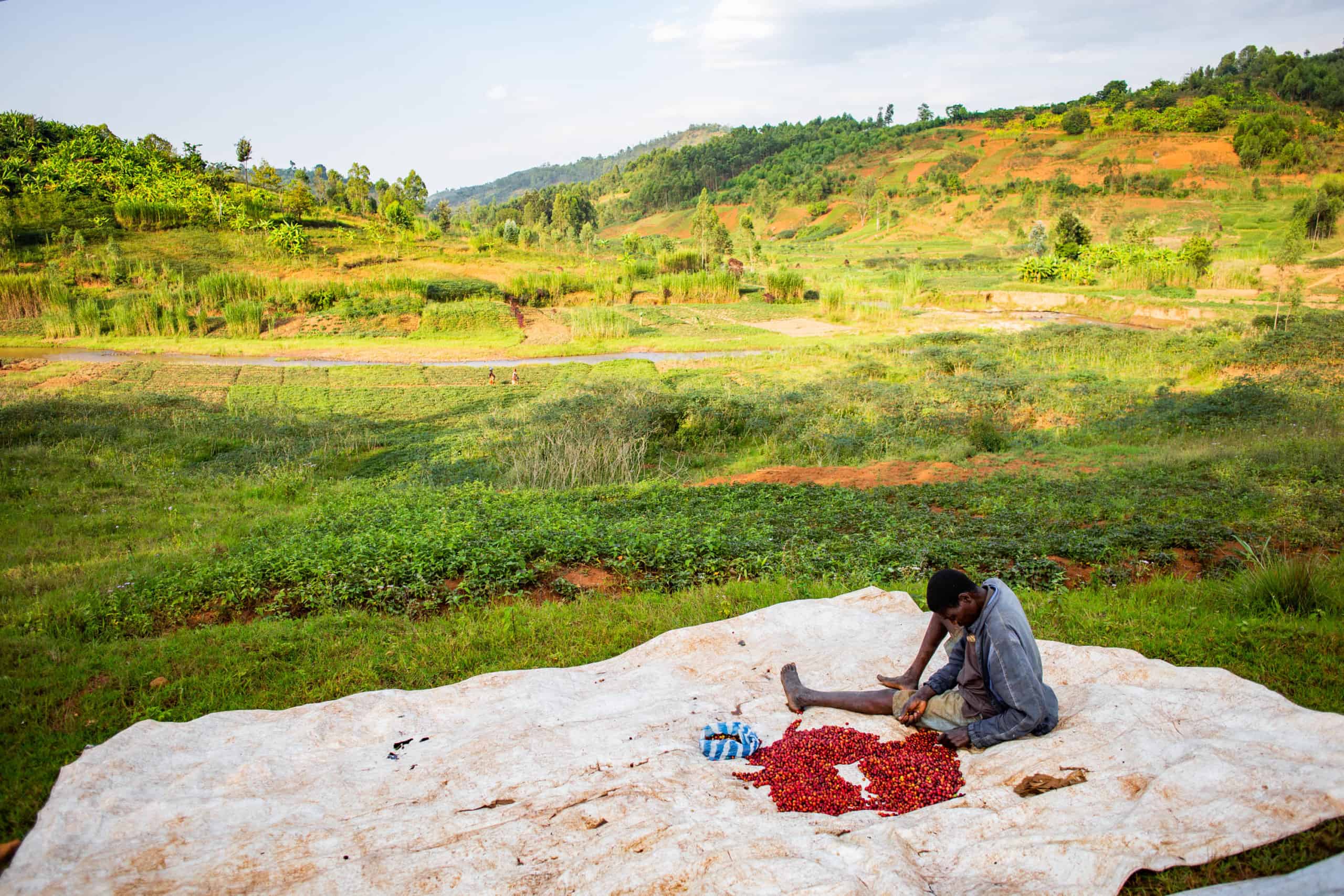
OUR RITUAL
We like our ROSA sweet.
• Method – V60
• Coffee – 20 Gr
• Water – 300 ML
• Pour guide – 100/200/300 ml
• Grind – Drip size (coarse brown sugar)
WHAT’S THE RITUAL
0. Boil some water
1. Grind your bourbon coffee beans
2. Rinse your filter
3. Put your coffee into the filter and place above a large glass/pot
4. Pour 1/3rd of the Boiling water to cover the coffee in the filter.
5. Wait until drained and repeat step 4 until you reach 300ml of water.
Pro tips:
• Put your drip and glass on a kitchen scale and measure the water.
• Pour in slowly and a circular motion to make sure you cover all the grounds.
• Don’t stir your coffee while filtering.
ENJOY!
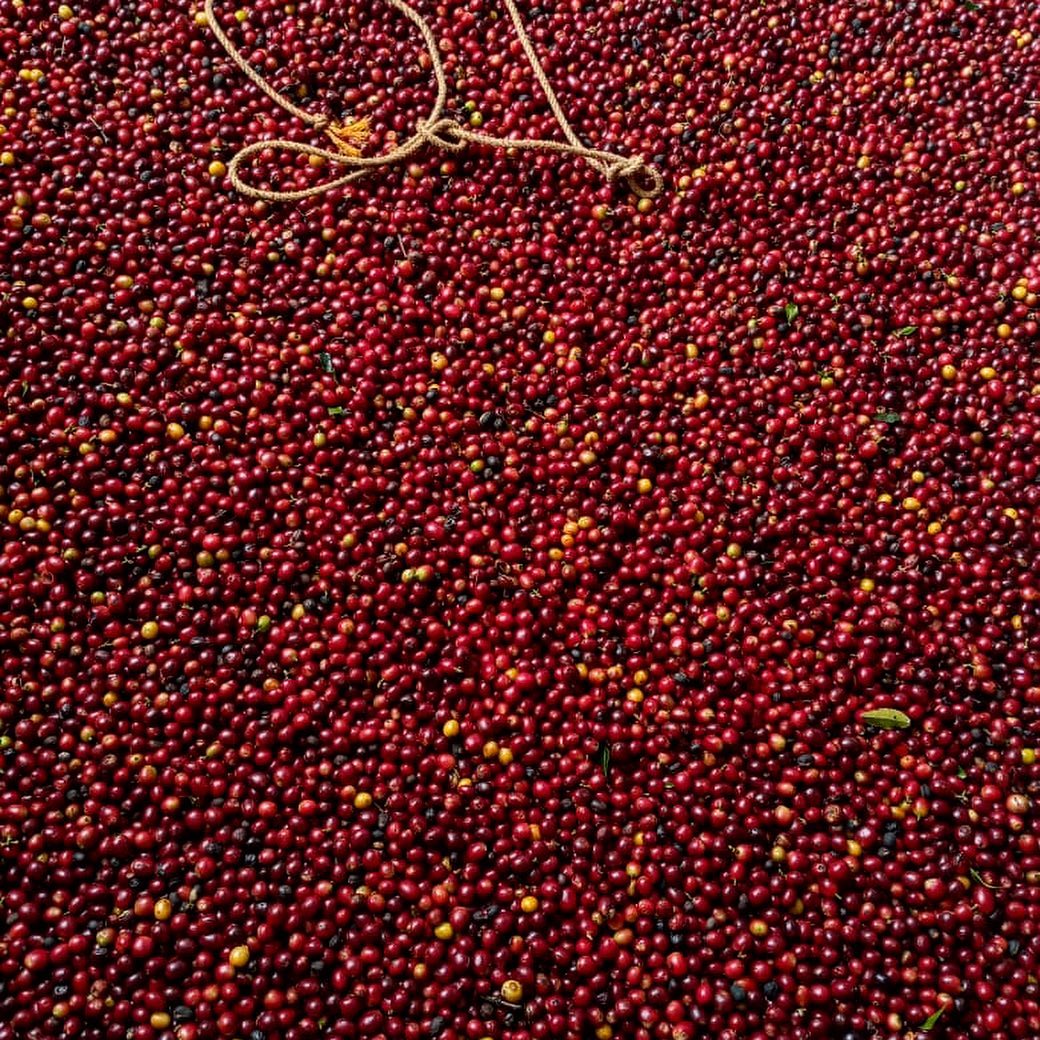
CHECK OUT MORE PICTURES FROM THE FARM:
TRY OUR BOURBON HUYE WASHED AND OUR OTHER COFFEES:
Coffee varieties, varietal, cultivar; What does it all mean?
WHY ARE COFFEE VARIETIES IMPORTANT? How important coffee varieties are depends on your role in the coffee supply chain. If you’re a consumer, you migh...
KOPI LUWAK, THE MYTH, THE Legend AND THE SHIT
MYTHS AND LEGENDS AROUND THE KOPI LUWAK TOPIC. A few sentences of introduction – what exactly is kopi luwak? For those unfamiliar with the Kopi Luwak ...
GET TO KNOW OUR GAYO
4°33’32.1″ N 96°52’08.1″ E 3X PICK GAYO SEMI-WASHED Find out more about our 3X PICK GAYO SEMI-WASHED below. COFFEE FROM THE GAYO REGION OF SUMATRA Cof...
